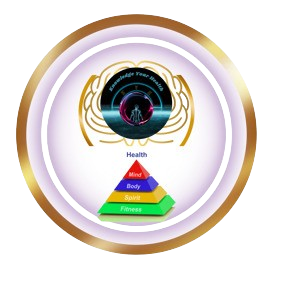Vitamin B1 (Thiamine) Overview
Vitamin B1, also known as thiamine, is a water-soluble vitamin that plays a crucial role in converting food into energy. It is an essential nutrient, meaning our bodies cannot produce it on their own, so we need to obtain it from our diet or supplements. Thiamine is involved in various metabolic processes and is particularly important for the proper functioning of the heart, muscles, and nervous system.
Health Benefits of Vitamin B1
1. Energy Production: Vitamin B1 is essential for converting carbohydrates from food into energy that the body can use. It plays a key role in the metabolism of glucose, the primary source of energy for our cells.
2. Nervous System Health: Thiamine is vital for maintaining a healthy nervous system and supporting nerve function. It helps transmit nerve impulses and is crucial for the proper functioning of the brain and spinal cord.
3. Heart Health: Vitamin B1 is important for maintaining heart health and supporting cardiovascular function. It helps regulate heart muscle contractions and supports the proper circulation of blood throughout the body.
4. Muscle Function: Thiamine plays a role in muscle contraction and relaxation, supporting overall muscle function and physical performance.
Diseases and Conditions Benefited by Vitamin B1
1. Beriberi: Severe Vitamin B1 deficiency can lead to beriberi, a condition characterised by fatigue, muscle weakness, nerve damage, and heart problems.
2. Wernicke-Korsakoff Syndrome: Chronic thiamine deficiency can result in Wernicke-Korsakoff syndrome, a neurological disorder that affects memory, coordination, and muscle control.
3. Peripheral Neuropathy: Thiamine deficiency can cause peripheral neuropathy, a condition characterised by numbness, tingling, and pain in the hands and feet.
4. Cardiovascular Disease: Some research suggests that Vitamin B1 may help reduce the risk of cardiovascular disease by supporting heart health and improving blood circulation.
Recommended Dosage of Vitamin B1
The recommended daily allowance (RDA) for Vitamin B1 varies depending on age, gender, and life stage:
- Infants (0-6 months): 0.2 mg (milligrams)
- Infants (7-12 months): 0.3 mg
- Children (1-3 years): 0.5 mg
- Children (4-8 years): 0.6 mg
- Children (9-13 years): 0.9 mg
- Teens (14-18 years): 1.2 mg for males, 1.0 mg for females
- Adults (19 years and older): 1.2 mg for males, 1.1 mg for females
Food Sources of Vitamin B1
1. Whole Grains: Whole grains like brown rice, oats, and whole wheat are excellent sources of Vitamin B1.
2. Legumes: Lentils, black beans, and peas are rich in thiamine.
3. Nuts and Seeds: Sunflower seeds, macadamia nuts, and pecans contain Vitamin B1.
4. Pork and Lean Meats: Pork loin, ham, and lean cuts of beef are good sources of thiamine.
5. Fish: Tuna, trout, and mackerel contain Vitamin B1.
Tips for Maximising Vitamin B1 Absorption:
Cooking Methods: Thiamine is sensitive to heat but is stable in water. Steaming, boiling, and poaching are cooking methods that help preserve thiamine content in foods.
Dietary Diversity: Incorporating a variety of Vitamin B1-rich foods into your diet can help ensure you’re getting enough of this essential nutrient.
In conclusion, Vitamin B1 (thiamine) is a vital nutrient that plays a crucial role in energy production, nervous system health, heart health, and muscle function. By incorporating Vitamin B1-rich foods into your diet and following the recommended dosage guidelines, you can maintain optimal thiamine levels and support your overall health and well-being. Always consult with a healthcare professional before starting any supplementation regimen to ensure it’s appropriate for your individual needs.
